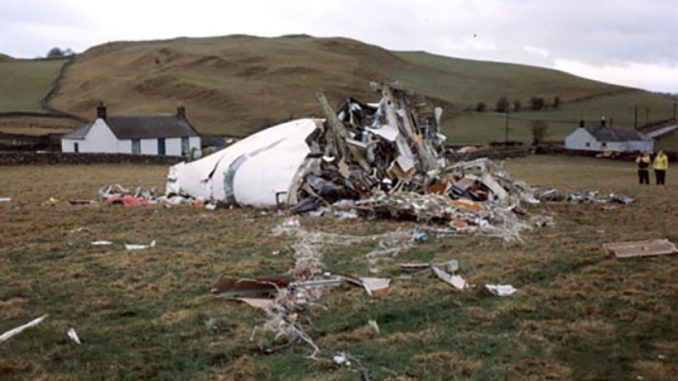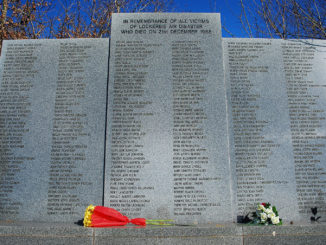
Scotland’s Court of Appeal has rejected both grounds of appeal that were lodged by the family of Abdelbaset al-Megrahi following a review found that there may have been a miscarriage of justice.
Former Libyan Intelligence Officer al-Megrahi is the only man ever convicted of the 1988 bombing on Pan Am 103 which killed 270 people with the wreckage falling on the Scottish borders town of Lockerbie.
Scottish criminal cases review commission SCCRC, Scotland’s official body for reviewing suspected miscarriages of justice, returned the case to court and the appeal rested on two counts.
- That no reasonable jury would have convicted al-Megrahi on the evidence offered in court, in particular, the circumstantial evidence of Tony Gauci, a Maltese shopkeeper who claimed he sold clothes to al-Megrahi which were placed in the suitcase bomb which varied wildly through different statements.
- That the conviction was unsafe because the prosecution withheld evidence that raised strong doubts about reliability of Gauci’s evidence and information contained in CIA cables.
Lord Carloway, Scotland’s most senior judge, rejected both counts.
There is also reportedly evidence passed on by the Jordanian intelligence agencies that suggested the bombing was actually carried out by the Popular Front for the Liberation of Palestine-General Command (PFLP-GC) and even named the bomber as Marwan Khreesat.
This evidence was subject to a public interest immunity certificate which foreign secretary Dominic Raab upheld in 2020 so has never been released to the defence.
Many people, including relatives of the victims of Pan Am 103, continue to believe that the conviction of al-Megrahi was orchestrated by the US and UK in a bid to blame to Libya for the bombing despite evidence pointing in other directions.
Following the appeal rejection, Lawyers for the family said “Ali al-Megrahi, the son of the only man convicted of the Lockerbie bombing, said his family were left heartbroken by the decision of the Scottish courts. He maintained his father’s innocence and is determined to fulfil the promise he made to clear his name and that of Libya.”
The case will now be referred to the Supreme Court in London and the legal team intend to continue to push for the release of the documents being withheld by the UK Government.
Professor Emeritus of Scots Law at the University of Edinburgh, Robert Black QC, called the rejection “A sad day for the reputation of the Scottish criminal justice system.”
Talking about the appeal courts findings, he explained “as regards the first ground of appeal, the court concludes in paragraph 87 that, notwithstanding evidence challenging 7 December 1988 as the date of purchase of the items from Tony Gauci’s shop, and notwithstanding concerns about the evidence supporting Gauci’s ‘identification’ of Megrahi, ‘… the contention that the trial court reached a verdict that no reasonable court could have reached is rejected. On the evidence at trial, a reasonable jury, properly directed, would have been entitled to return a guilty verdict.
“As regards the ground of appeal founding upon failure by the Crown to disclose material that would have been helpful to the defence the court concludes that even if the material had been disclosed it would not have made a difference to the guilty verdict. Paragraph 135 of the opinion reads: ‘The contention that the Crown failed to disclose material which would have created a real prospect of a different verdict is rejected.’ The outcome of the appeal is a cogent illustration of just how difficult it is to have the Scottish criminal justice system acknowledge that a mistake has been made, as I continue to believe has happened here.
“It is, I contend, a matter of grave public concern, that the appeal was so narrowly confined and that issues such as the metallurgy of the circuit board fragment and Dr Morag Kerr’s findings regarding the loading of the bomb suitcase at Heathrow were not ventilated.”
Abdelbaset al-Megrahi died in 2012 in Libya after being released on compassionate grounds with terminal cancer.




